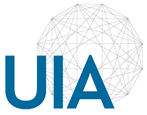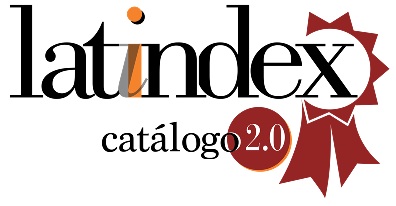Education for sustainable development
DOI:
https://doi.org/10.5281/zenodo.7532863Keywords:
education, sustainable development, articulations between education and sustainable development, academic institutionsAbstract
The objective is to show the huge relevance that education has and its potential to train students, teachers, researchers, managers and directors, with respect to the alarming situation faced by our planet and the possible solutions that can be proposed to tackle this global problem. To do that, a search of international documents on Education for Sustainable Development from the United Nations Educational, Scientific and Cultural Organization (UNESCO) and the United Nations Organization (ONU) was carried out, along with some recent works about the complex linkages that occur between education and sustainable development. Regarding publications, the international documents on this field are dominant and have a positive character, although some works were found, which judge that the proposals may have some negative or incomplete aspects, and so offer other perspectives that go beyond the Sustainable Development Goals. The article seeks to contribute to the knowledge and reflection of the conditions that have led to global warming and habitat destruction, to the diverse resources that have been created to reverse these processes, and especially to raise awareness through education for sustainable development.
Downloads
References
Alonso-Sainz, T. (2021). Educación para el desarrollo sostenible: una visión crítica desde la Pedagogía. Revista Complutense de Educación, 32(2), 249-259. http://dx.doi.org/10.5209/r.ced.68338
Brundtland, G.H. (1987). World Commission on Environment and Development. Our Common Future. Oxford: Oxford University Press. https://sustainabledevelopment.un.og/content/documents/5987our-common- future.pdf
Cheng, Z.; Xiao, T.; Chen, C. & Xiong, X. (2022). Evaluation of Scientific Research in Universities Based on the Idea of Education for Sustainable Development. Sustainability, 14, 2474. https://doi.org/10.3390/su14042474
Daly, H. (2013). Una economía de estado estacionario. Nueva Sociedad, 244, 134-141. https://library.fes.de/pdf-files/nuso/nuso-244.pdf
Kopnina, H. (2020). Education for the future? Critical evaluation of education for sustainable development goals. The Journal of Environmental Education, 51(4), 280-291. https://doi.org/10.1080/00958964.2019.1710444
Laurie, R., Nonoyama-Tarumi, Y., Mckeown, R. & Hopkins, C. (2016). Contributions of Education for Sustainable Development (ESD) to Quality Education: A Synthesis of Research, Journal of Education for Sustainable Development, 10(2), 226–242. https://10.1177/0973408216661442
Leal Filho, W., Manolas, E. & Pace, P. (2015). The future we want. Key issues on sustainable development in higher education after Rio and the UN decade of education for sustainable development. International Journal of Sustainability in Higher Education, 16(1) pp. 112 – 129.http://dx.doi.org/10.1108/IJSHE-03-2014-0036
Ludeña, J.A. (2022). Estado estacionario. http://economipedia.com/defiiciones/estado-estacionario.html
Oficina del Global Compact de Naciones Unidas (2007). Principios para una Educación Responsable en Gestión PRME. http://www.bibliotecavirtualrs.com/wp-content/uploads/2011/12/EDUCACIONRESPONSABLEPRMEencastellano.pdf
O´Flaherty, J. & Liddy, M. (2018). The impact of Development education for Sustainable Development Interventions: A Synthesis of the Research. Environmental Education Research, 24(7), 1031-1044. https://www.doi.org/10.1080/13504622.2017.1392484
ONU (2012). The future we want. Outcome document of the United Nations Conference on Sustainable Development. https://sustainabledevelopment.un.org/content/documents/733FutureWeWant.pdf
ONU (2015). Transformar nuestro mundo: la Agenda 2030 para el Desarrollo Sostenible. https://www.fundacioncarolina.es/wp-content/uploads/2019/06/ONU-Agenda-2030.pdf
Parlamento Europeo (s/f). Economía circular: definición, importancia y beneficios. https://www.cde.ual.es/economia-circular-definicion-importancia-y-beneficios/
Rodríguez, A. (2017). El desarrollo sostenible desde la perspectiva de la educación superior en América Latina y el Caribe. En UNESCO e IESALC (Editores), Educación Superior y Sociedad (ESS). La CRES 2018: una discusión en línea. Colección 25° Aniversario, vol. 25, pp. 131-164. https://www.iesalc.unesco.org/ess/index.php/ess3/article/view/61/62
Troya, A.A. (2021). Hacia una cultura de educación ambiental desde la sostenibilidad. En Escobar, F.; Cristancho, J.A., Useche, L.T., Acuña, M., Coromoto, A., Troya, A.A., Suárez; I.A., Yate, F.F., Pietro, M., Jiménez Hernández, JJ. y Villarreal, S.P. (Editores), Innovación e investigación para la transformación educativa. Venezuela: UPEL-IMPM, pp. 119-146. https://doi.org/10.5281/zenodo.6209992
UNESCO (2007). Los dos primeros años del Decenio de las Naciones Unidas de la Educación para el Desarrollo Sostenible (2005-2014). https://unesdoc.unesco.org/ark:/48223/pf0000154093_spa
UNESCO (2015). Replantear la educación. ¿Hacia un bien común mundial? Paris, Francia: Organización de las Naciones Unidas para la Educación, la Ciencia y la Cultura. https://unesdoc.unesco.org/ark:/48223/pf0000232697
UNESCO (2017). Education for Sustainable Development Goals. Learning
Objectives. https://unesco.doc.unesco.org/ark:/48223/pf0000247444
Universidad Nacional Autónoma de México (2015). Posgrado en Ciencias de la Sostenibilidad. https://sostenibilidad.posgrado.unam.mx
Universidad Nacional Autónoma de México (2022). http://bit.ly/3VFodwm#OrgulloUNAM
Vázquez-Verdera, V., Domingo, J., Dura, E., Gabaldón-Estevan, D., López-Baeza, E., Machause López, S., Meco-Tébar, F., Rueda, S., Serrano-Lara, J.J., Signes-Soler, I. et al. (2021). The Future We Want: A Learning Experience to Promote SDGs in Higher Education from the United Nations and University of Valencia. Sustainability, 13, 8550. https://doi.org/10.3390/su13158550











































